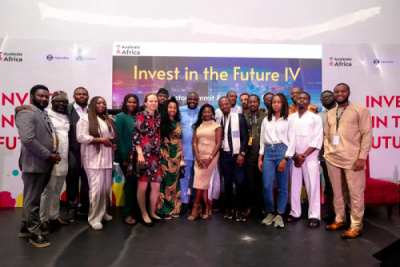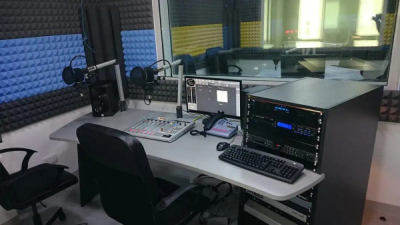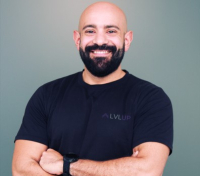-
Tunisian startup Tuniform launched in 2023 to help content creators generate online revenue.
-
Founder Yacine Aridhi positioned the platform as a regional alternative to global creator networks.
-
Tuniform allows creators to keep all earnings while targeting local currencies, regulations, and payment realities.
Tuniform operates as a digital solution developed by a Tunisian startup. The platform connects content creators with their communities while offering monetization tools tailored to local talent. The startup operates from the city of Tabarka. Yacine Aridhi founded the company in 2023.
“The platform addresses the lack of accessible and user-friendly solutions for creators in the region by offering a smooth and culturally relevant experience,” the startup said. It added, “With the ambition to become the leading monetization platform for creators in Tunisia, the MENA region and Africa, Tuniform is building the digital infrastructure of the next generation of the creator economy in emerging markets.”
Tuniform positions itself as a regional alternative to major global networks. The platform emphasizes creativity, engagement, and creator autonomy. Users register easily through a secure interface using a Google account or an email address. Creators then build personalized spaces to share content with subscribers.
Direct support between fans and creators forms the core of Tuniform’s model. Users subscribe to their preferred creators to unlock exclusive content. Creators offer posts, guides, e-books, and other digital formats. This structure strengthens direct and meaningful relationships between creators and audiences.
“Existing social networks focus on content distribution and visibility but make monetization inaccessible or indirect,” Aridhi said. “Global monetization platforms exist, but they are not designed for local currencies, local markets, local regulations or local payment realities.”
On Tuniform, creators retain all their earnings without hidden fees or significant intermediary commissions. The platform reflects the culture and aspirations of Generation Z in Tunisia and the MENA region. Tuniform combines content discovery, community engagement, and creator revenue. The platform builds a social ecosystem adapted to current digital challenges.
This article was initially published in French by Adoni Conrad Quenum
Adapted in English by Ange Jason Quenum
-
Nigerian fintech startup Clea launched in 2024 to simplify cross-border payments for African businesses.
-
Founder Sheriff Adedokun positioned Clea as a faster and cheaper alternative to traditional banking channels.
-
Clea targeted importers, exporters, and logistics providers amid growing African trade integration.
African companies continue to face structural barriers when paying foreign suppliers. Clea positioned itself as a simplified cross-border payment solution designed for importers operating across international markets.
Clea operates as a fintech solution developed by a Nigerian startup. The platform allows businesses to pay international suppliers directly and transparently. The company removes delays and high costs associated with traditional banking channels. Sheriff Adedokun founded the startup in 2024.
“We simplify international payments for importers, exporters and logistics providers by offering fast, compliant and cost-effective transactions to global suppliers,” the startup said. “Our mission is to energize African trade through modern financial infrastructure by eliminating friction related to foreign exchange, settlement and compliance.”
Clea provides a mobile application available on iOS and Android. The platform operates as a technology-driven financial intermediary. The system connects African businesses to overseas suppliers by facilitating foreign-currency transfers, including U.S. dollar payments.
The platform allows users to fund a digital wallet and execute international transfers in a few steps. The system offers competitive foreign exchange rates. Clea designed the user experience to reduce operational friction. The platform requires users to complete registration and verification only once. Businesses then initiate payments quickly based on operational needs.
African economic integration continues to accelerate, particularly through initiatives such as the African Continental Free Trade Area (AfCFTA). Solutions such as Clea address a major friction point in international trade for small and medium-sized enterprises and importers. The platform enables secure, fast and cost-efficient cross-border payments. Clea strengthens the African fintech ecosystem. The company helps businesses reduce operational costs. The platform enhances corporate competitiveness in global markets.
This article was initially published in French by Adoni Conrad Quenum
Adapted in English by Ange Jason Quenum
The Freshmango Accelerator program is accepting applications to help early-stage entrepreneurs turn ideas or prototypes into investment-ready startups. The program is run online, is equity-free, and offers one-on-one mentorship, AI-powered tools and tailored support. Applications can be submitted online.
The Accelerate Africa program is launching its fourth cohort, set to begin in March in Lagos. Targeting African startups, the initiative aims to help businesses reach $1 million in revenue within two years, supported by mentorship from experienced entrepreneurs across the continent. Applications close on Saturday, Jan. 31.
- Morocco digitizes 68 of 76 fish markets to improve tracking, governance, and data collection.
- Satellite monitoring and RFID tracking now cover all vessels in Moroccan waters to combat illegal fishing.
- Digital tools support scientific research, fisheries management, and market oversight amid declining catches and revenues.
Morocco faces a 15% decline in coastal and artisanal fish landings and a 4% drop in sector revenues through November 2025, according to the National Office of Fisheries.
The government sees digitalization as a tool to address these challenges.
During a parliamentary session on Monday, January 5, 2026, Secretary of State for Maritime Fisheries Zakia Driouich said that 68 of the country’s 76 first-sale fish markets now operate with digital systems.
The digital deployment allows the government to access precise data and strengthen oversight of commercial transactions.
Digital registration enables tracking of sales and production of actionable data, reducing opacity in exchanges.
The system also enhances control and audit capabilities, a key lever to improve governance and industry practices.
Digitalization extends beyond markets to fishing zones.
Driouich said all vessels operating in Moroccan waters are now monitored via satellite.
The government also uses radio-frequency identification (RFID) to trace authorized vessels, reinforcing controls and combating illegal fishing.
Officials apply these tools to scientific research, fisheries management, production methods, and commercialization.
The approach aims to improve data collection, planning, and sustainable resource management.
The initiatives build on Morocco’s long-standing strategy.
The Halieutis strategy, launched in 2009, initiated gradual modernization, including replacing paper documentation with electronic data processing for exports.
With the digitalization of first-sale markets and enhanced maritime monitoring, Morocco takes a new step toward a more traceable, regulated, and data-driven fisheries sector.
- Senegal adopts a draft law to replace the CNRA with a new National Media Regulation Council.
- The reform extends regulation to digital platforms and online content creators.
- The government aims to curb disinformation while preserving freedom of expression.
New media platforms, including social networks, blogs, and video-sharing sites, now dominate information consumption among young people in Africa and elsewhere.
Governments face rising challenges from disinformation, hate speech, and other abuses on digital channels that regulators previously overlooked.
Against this backdrop, regulation has become an urgent priority.
At a cabinet meeting held on Wednesday, January 7, 2026, the Senegalese government adopted a draft law establishing the National Media Regulation Council, known by its French acronym CNRM.
The new institution will replace the National Audiovisual Regulation Council, or CNRA, which the government created in 2006.
This reform marks a major overhaul of the legal framework to address digital transformation and evolving information practices.
According to Minister of Communication, Telecommunications, and Digital Affairs Alioune Sall, the reform aims to “adapt regulation to technological change, protect rights, strengthen accountability among stakeholders, and consolidate democracy.”
The minister said the legal framework will align “with international best practices in media and digital communication regulation, while taking into account recommendations from regional and international bodies.”
Over the past two decades, digitalization, the rise of social platforms, and the growth of independent content creators have transformed Africa’s media landscape, particularly in Senegal.
The reform seeks to extend regulation to a hybrid public space where traditional and digital media increasingly overlap.
Under the new framework, the CNRM will supervise digital platforms and content creators who disseminate information to the public.
This approach aligns with a global trend in which governments attempt to balance the protection of freedoms with digital accountability.
States increasingly target fake news and online opinion manipulation while preserving democratic principles.
“When they participate in the public information space, they must comply with principles of responsibility, just like traditional media,” said Habibou Dia, director of communication at the Ministry of Communication, Telecommunications, and Digital Affairs.
The policy aims to establish a level regulatory playing field, promote shared ethical standards, and combat disinformation while safeguarding freedom of expression.
The cabinet’s adoption of the draft law represents an initial step in the legislative process.
The government will soon submit the bill to the National Assembly for review and final approval.
Implementation of the law would mark Senegal’s transition to a new phase of media regulation based on an integrated and digital-economy-oriented model.
- Guinea launched Univ Connect to interconnect higher education institutions through a national fiber-optic network.
- Authorities connected 13 university sites, with 9 fully operational and 4 under activation, and plan to reach 17 institutions.
- The project targets nearly 80,000 students, researchers, and lecturers under the Simandou 2040 digital strategy.
Under the leadership of Rose Pola Pricemou, Minister of Posts, Telecommunications, and the Digital Economy, Guinea officially launched “Univ Connect” in late December 2025. The National Agency for Universal Telecommunications and Digital Services (ANSUTEN) leads the fiber-optic interconnection project, which aims to equip higher education institutions with faster, more stable, and more secure Internet infrastructure.
“This initiative marks a decisive step in supporting the digital transformation of Guinea’s education sector and will enable our institutions to deliver academic services that meet international standards,” ANSUTEN said.
On the operational front, authorities have already connected 13 sites to the national fiber network, according to information released at the launch. Nine sites now operate fully, while four sites remain under commissioning. In addition, authorities announced four more sites in the deployment phase. Ultimately, the program plans to connect and interconnect 17 higher education institutions to form a nationwide high-speed and secure academic network.
According to ANSUTEN, the project aligns with the government’s broader digital transformation drive under the Simandou 2040 sustainable socio-economic development program. Authorities aim to strengthen access to modern and reliable digital infrastructure for public and private universities across Guinea.
Beyond Internet access, the government seeks to create a full “academic network” that enables institutions to share resources and modernize services. Univ Connect will expand access to digital libraries, online learning platforms, and research tools while improving exchanges among nearly 80,000 teachers, researchers, and students.
The interconnection will also enable more intensive uses, including videoconferencing, hybrid courses, inter-university collaboration, access to scientific databases, and hosting of educational applications. Over the medium term, this digital backbone could support national research and innovation platforms.
However, sustainability remains a key challenge. The network’s long-term impact will depend on equipment maintenance, the resilience of internal campus networks, energy availability, and the implementation of cybersecurity standards. In other words, fiber infrastructure forms only the foundation, and durable governance will determine whether Guinea reaches its targeted international standards.
This article was initially published in French by Muriel EDJO
Adapted in English by Ange Jason Quenum
- President Abdel Fattah al-Sisi has called for expanded local production of telecom equipment and development of data centers and cloud services.
- Egypt’s telecommunications sector accounts for about 6% of GDP and posts annual growth of 14%–16% for the seventh consecutive year.
- Egypt has attracted nearly $200 million in telecom manufacturing investments and aims to raise mobile phone output to 15 million units per year.
Since launching its “Vision 2030” development strategy in 2016, Egypt has positioned digital transformation as a central pillar of economic growth. The country has relied on the expansion of ICT infrastructure and the promotion of digital inclusion as key drivers of this strategy.
On Monday, Jan. 5, 2026, Egyptian President Abdel Fattah al-Sisi emphasized the need to open new horizons for the telecommunications and digital industries. He instructed officials to study opportunities to develop data centers and cloud computing services, expand local production of telecommunications equipment, and establish effective mechanisms to support and promote locally manufactured products.
Officials discussed these issues during a meeting that included Prime Minister Moustafa Madbouly, Minister of Communications and Information Technology Amr Talaat, and National Telecommunications Regulatory Authority (NTRA) Executive President Mohamed Shamroukh.
Amr Talaat said the telecommunications sector now contributes about 6% of Egypt’s gross domestic product and records annual growth ranging between 14% and 16% for the seventh consecutive year. He also reported that digital services exports have risen to $7.4 billion, compared with $3.3 billion seven years earlier.
By investing in the development of data centers, Egypt strengthens the security of strategic state data and data from key domestic market sectors. At the same time, the country attracts international companies by building infrastructure credibility, which supports its ambition to position itself as a regional hub for high-performance digital services.
Telecommunications currently represent one of the pillars of Africa’s digital economy, particularly in Egypt. Strengthening local equipment manufacturing reduces network transformation costs for telecom operators and supports further investment. Locally produced mobile phones, offered at more affordable prices, are expected to improve accessibility and expand the use of value-added digital services among a larger share of the population.
According to Amr Talaat, Egypt has increased mobile phone production capacity from 3.3 million units in 2018 to 10 million units in 2025, with local value added estimated at around 40%. The government aims to raise annual production capacity to 15 million units. Through industrial localization efforts launched in 2016, supported by several incentive schemes, Egypt has already attracted 15 international brands, including Samsung, Xiaomi, Oppo, Vivo, and Nokia, as well as nearly $200 million in investment.
Muriel EDJO
- Zimbabwe plans ZIMSAT-3 satellite under 2026-2030 development strategy
- Satellite to boost broadband, digital services in rural and urban areas
- Plan expands fibre, mobile networks, infrastructure sharing to cut costs
Zimbabwe plans to deploy a third national satellite, ZIMSAT-3, to improve connectivity, according to its National Development Strategy 2 (NDS2) for 2026-2030.
The satellite is expected to support broadband expansion and improve access to digital services in both rural and urban areas, the strategy document says.
The plan forms part of broader efforts to expand internet access nationwide. In March 2024, the government said it was exploring partnerships with several satellite service providers to extend coverage and lower costs.
NDS2 also sets out measures to expand digital infrastructure, including wider high-speed fibre-optic coverage in urban, peri-urban and rural areas, broader mobile broadband access, and the installation of solar-powered digital kiosks in off-grid and underserved communities.
The strategy calls for infrastructure-sharing agreements among telecommunications operators to speed up network deployment and reduce the cost of internet and digital services.
The move reflects the growing role of satellite technology in narrowing the digital divide, particularly in sub-Saharan Africa, where challenging terrain complicates the rollout of terrestrial networks, according to the GSMA.
Zimbabwe had 6.45 million internet users at the start of 2025, representing a penetration rate of 38.4%, DataReportal data show. The International Telecommunication Union estimates that 2G, 3G, 4G and 5G networks covered 93.9%, 87.9%, 51.6% and 15.9% of the country respectively in 2024.
Isaac K. Kassouwi
Operating in a healthcare system often marked by complexity, the Egyptian entrepreneur has turned to digital solutions to simplify how patients and doctors connect.
Mina Shawky is an Egyptian entrepreneur and trained pharmacist. He is the co-founder and chief executive of CliniDo, a digital healthcare platform connecting patients with medical professionals.
Founded in 2020, CliniDo operates as a digital health companion available through a mobile application and web platform. It aims to simplify access to healthcare services by bringing together physician discovery, appointment booking and medical follow-up within a single interface.
Through the platform, patients can identify healthcare professionals, schedule consultations and access a range of medical services in one place. These include remote video and audio consultations, laboratory test bookings and home medical visits, depending on patient needs.
CliniDo also targets healthcare providers, helping doctors expand their digital visibility and reach a broader patient base through detailed professional profiles and patient reviews. The platform provides digital tools to manage appointments, medical practices and service offerings, supporting more efficient organization and improved continuity of care.
Shawky graduated from the Faculty of Pharmacy at Cairo University, earning a bachelor’s degree in pharmacy in 2010. He later obtained a master’s degree in marketing in 2017 from ESLSCA Business School Paris.
He began his career in 2011 as a production pharmacist at the Egyptian Armed Forces pharmaceutical plant. In 2012, he joined EVA Pharma as a medical representative before moving the same year to Novartis, where he worked as an associate product manager in diabetes care. In 2017, he was appointed product innovation lead at Vezeeta.com, a Dubai-based healthtech company. Between 2018 and 2021, he served as a product manager at Egyptian fintech firm Aman E-Payments.
Melchior Koba
More...
Founded in 2024, the platform helps merchants create structured online storefronts while centralising sales, inventory and performance tracking tools.
Ali Mokrani is an Algerian business intelligence specialist and technology entrepreneur. He is the co-founder and CEO of Ayor AI, an online platform that enables users to build structured e-commerce storefronts quickly.
Founded in 2024, Ayor AI allows merchants to create sales pages organized around clear, streamlined customer journeys, guiding visitors from product discovery to payment. The platform includes conversion tools designed to turn visitors into customers, support cross-selling and upselling, and increase average order value.
Ayor AI offers centralized management of products, inventory, and orders, with real-time sales tracking to help prevent stock-outs. It also integrates performance-monitoring tools that allow merchants to evaluate what works and adjust offers and marketing campaigns accordingly. Connections with services such as Google Tag Manager and analytics dashboards enable more granular analysis of orders and user behavior.
The platform connects with a wide range of external services to simplify day-to-day operations, including order tracking, delivery management, and order confirmations. It also integrates with other e-commerce platforms, spreadsheet tools, and partner applications to import product catalogs, monitor abandoned carts, and improve transaction security.
Before launching Ayor AI, Mokrani co-founded digital marketing agency Meanbot in 2018. He holds a bachelor’s degree in technical English, obtained in 2012 from the University of Continuous Studies, and a master’s degree in business intelligence from El Bachir El Ibrahimi University in Bordj Bou Arreridj.
He began his career in 2012 at electronics manufacturer Condor Algerie as a software engineer. In 2013, he became IT manager at construction firm TRAVOCOVIA. He returned to Condor Algerie the following year, where he held several roles, including application development assistant, ICT director, and application development manager. Between 2023 and 2024, he headed the Maystro-shop division at Maystro Delivery, an Algerian logistics company serving e-commerce merchants.
Melchior Koba
The Moroccan software engineer is the founder of SVB DEV, a company developing digital tools to improve efficiency, coordination and asset management in real estate and construction.
Zouhair Brouzi (photo, right) is a Moroccan software engineer and entrepreneur. He is the founder and chief executive of SVB DEV, a company that develops digital solutions for professionals in real estate and construction.
Founded in 2024, SVB DEV focuses on construction project management and real estate asset management. Its solutions are designed to help teams manage construction sites, buildings and facilities more efficiently, with an emphasis on smart building management, risk reduction and operational performance.
The company develops software and digital products, including web applications, analytics tools and remote infrastructure services for secure data hosting and management. Its flagship products include Smart BIM, a collaborative web platform for project coordination, and Smart Facility Management, a solution for preventive and corrective maintenance of real estate assets. SVB DEV also offers Smart GED, an electronic document management system that improves documentation, collaboration and regulatory compliance on construction sites.
Before founding SVB DEV, Brouzi co-founded Virtual Building Solution in 2014 and served as its chief executive until 2023. In 2024, he also co-founded Optimize Health Solution (OHS), a startup focused on digital health solutions.
Brouzi holds a master’s degree in software engineering from the École de technologie supérieure in Canada (2005) and a master’s degree in computer engineering from the University of Montreal (2007). He also earned a university diploma in e-health and connected medicine from Université Mohammed VI Polytechnique (UM6P).
He began his career in Canada in 2001 at software company Digimind as an information systems analyst. In 2005, he joined telecommunications group Bell as an engineering team lead. In 2008, he became director of information systems at Canadian data firm ArchiDATA. From 2011 to 2014, he worked as a project manager at information systems specialist Omnidata. In 2023, he joined the Institut national de la recherche scientifique in Montreal as a researcher.
Melchior Koba
Just before the Orange EA SPORTS FC™ 26 Grand Finale kicked off at Casablanca’s Sacré-Cœur on December 19, Orange Middle East and Africa’s (OMEA) Brand and Sponsoring Director outlined the tournament’s evolution. She highlighted Orange’s commitment to African esports and its efforts to build a more inclusive and sustainable competitive ecosystem.
We Are Tech (WAT): This tournament used to be called the Orange eSport Experience, but now it’s Orange EA SPORTS FC™ 26. Aside from the name, what has changed and why?
Muriel Cissé: You’re right. The Orange eSport Experience had a great seven-year run but we felt it was time to take the tournament to the next level, which is why we partnered with EA SPORTS, a true powerhouse in the gaming industry. Beyond boosting our credibility and visibility, the partnership gives our players the opportunity to compete on the brand-new EA Sports FC 26 platform.
The new format now brings together 15 African countries, plus Réunion Island, which is joining the Orange Middle East and Africa (OMEA) circuit for the first time. It’s a major step forward. Our ambition is to show that Africa and its young talent belong on the global esports stage, and working with a world leader in gaming is a key part of that journey.
Where does this edition fit within Orange’s overall strategy for esports growth in Africa and the Middle East?
This is really a natural evolution of our work. Since 2016, our ambition in esports has gone hand in hand with our core business as an internet service provider. High-speed broadband is the backbone of online gaming and tournament streaming.
Beyond connectivity, our second major focus is inclusion. For a long time, local champions struggled to access the international circuit. From the outset, we aimed to promote esports, help structure local ecosystems, and make gaming accessible to everyone.
Through the Orange eSport Experience tournaments we’ve organized since 2018, we’ve given players a platform to compete and gain visibility. This has helped strengthen local communities and has even led to the creation of official esports federations in several countries. We remain committed to that original mission: promoting esports, identifying local talent, delivering high-quality experiences, and giving players a pathway to the global stage.
Inclusion also underpins our commitment to ethical and responsible gaming. We want esports to be open to all young people and increasingly gender-inclusive. For our finale in Casablanca, we are proud to welcome several female competitors, particularly from Cameroon and Morocco.
Looking back since the launch, what are the key figures and results of Orange’s commitment to esports?
Since 2018, we have hosted five pan-African editions, giving our athletes the opportunity to connect and level up. The results have been positive on several fronts. We’ve played a key role in structuring emerging ecosystems by partnering with local grassroots associations. Today, we’re seeing the rise of official national federations in countries like Cameroon, Senegal, and beyond. Orange has been a major driver in this move toward professionalization.
In terms of the numbers, gaming is now the world’s leading entertainment industry, surpassing both film and music. While data for Africa can be limited, we are seeing explosive growth across the continent. Statista projects over 420 million players by 2026, with a gamer penetration rate of 27% across Africa. As a major operator in the Middle East and Africa, Orange is committed to staying at the forefront of this momentum.
Given the wide geographic spread of this event, what resources are being deployed to ensure a top-tier experience for both players and spectators?
It starts with the cutting-edge technology we provide to young gamers, specifically the high-speed broadband, fiber, and 5G networks we are rolling out across our markets. These allow players to compete with minimal latency and make it possible to broadcast the tournaments. Beyond basic connectivity, we are leveraging our flagship "super-app," Max it, which has 22 millions active users across 16 markets, to promote esports.
Moving forward, Max it will become even more integrated with the gaming world. For instance, the Casablanca finale will be live-streamed directly on the app. We are also planning to launch a dedicated gaming "hub" within the app featuring exclusive content: match streams, special offers, and educational tutorials from world-renowned gamers to mentor our local talent. Our goal is to provide genuine added value to the community through the Max it platform.
With the Grand Finale taking place in Casablanca on December 19–20, what is at stake for the local champions representing their countries? What kind of regional impact are you expecting from this event?
For our champions, it’s first and foremost a matter of national pride. They really tap into that patriotic spirit, especially since the tournament focuses on virtual football (EA Sports FC 26), which aligns perfectly with our long-standing commitment to the sport. On a personal level, it’s an incredible opportunity for these players to sharpen their skills.
In terms of future prospects, every champion competing here automatically qualifies for an upcoming EA SPORTS FC™ Mobile tournament scheduled for mid-2026. That competition will expand beyond the OMEA region to include Orange’s European markets, giving our champions the chance to test their skills against players from around the world. On top of that, the overall winner of this tournament will receive a VIP trip to visit Real Madrid.
Visibility is another major factor. The event will be broadcast on Max it, YouTube, and FCM TV (the official EA Sports FC channel).
As for the regional impact, this broad coverage significantly grows our audience, and we hope it inspires a new generation of gamers. Hosting a tournament of this caliber on the eve of the TotalEnergies CAF Africa Cup of Nations Morocco 2026 highlights just how important esports is to Orange. We want to reinforce our commitment to supporting this ecosystem, helping establish regulations, and fostering the creation of national federations to propel our champions to the highest international levels.
Orange often speaks about a vision for "Responsible Esports" supported by the #ForGoodConnection program. What does this commitment look like in practice, and what initiatives are being held alongside the competition?
The #ForGoodConnection program allows us to raise awareness about cyberbullying and online safety. About two years ago, Orange launched “Safe Zones” within certain games in Europe. These are virtual spaces where players experiencing harassment can find immediate support and access contact information for advocacy groups.
Our responsible approach focuses on total inclusion, anti-bullying efforts, and the promotion of healthy screen time, which is a major priority in the esports world. #ForGoodConnection is a year-round commitment that we have fully integrated into this tournament.
One of our most concrete actions for this event was the intentional inclusion of female players. By bringing them into the competition, we are actively promoting gender diversity and making it clear that women have a central role in the future of esports.
What were some of the challenges you faced in organizing a tournament that spans 15 African countries and Réunion Island?
The institutional knowledge and experience we gained from previous editions of the Orange eSport Experience were invaluable. Our teams, based in London, Casablanca within the OMEA region, and across various local markets, have become seasoned experts in managing esports events. We also worked with a specialized agency. That collective effort and coordination allowed us to overcome challenges and bring this event to life.
The logistics were certainly demanding, particularly securing visas to bring all the players to Morocco. We were ultimately able to obtain approvals for nearly all participants. Organizing the event just ahead of the TotalEnergies CAF Africa Cup of Nations Morocco 2026 added another layer of complexity. However, by starting early and relying on our shared experience, we were
Beyond the professional players, how does Orange engage and unite local communities and casual fans in each country?
Our national qualifying phases are managed with a high level of professionalism, often held in venues that welcome live audiences to create a true "event" feel. These national finals are also frequently broadcast on local platforms, allowing us to reach a much wider audience of casual gamers and fans.
In several countries, we also sponsor public gaming centers where we host awareness programs and "brand activations" centered around casual matches. Our goal is to promote esports to the general public at a grassroots level, ensuring the ecosystem isn't just reserved for professionals, but is accessible to everyone.
Looking ahead, what is the future of Orange in the African esports scene?
Our biggest upcoming milestone is the international tournament slated for June/July 2026. This will be the next major chapter: an EA SPORTS FC™ Mobile tournament that will bring together not only Orange’s markets in Africa and the Middle East but also several of our European subsidiaries. This will create a truly cross-continental event, giving our African champions a global stage and the experience of competing at the highest level. The project is currently being finalized, but it perfectly embodies our ongoing commitment to inspiring youth, building esports awareness, and fueling innovation and passion across the continent.
Interview by Muriel Edjo
After identifying gaps in existing practices, Dossou developed a digital solution aimed at improving the reliability of medical prescriptions and streamlining pharmacy operations.
Gédéon Dossou, a Benin-based entrepreneur, is the co-founder and chief executive officer of Pharmatrack, a digital platform designed to strengthen the traceability of medical prescriptions and improve patient treatment monitoring.
Founded in 2023 with the support of several pharmacists, Pharmatrack develops a secure prescription digitization solution. Built on cloud technology and artificial intelligence, the platform enables fast and reliable prescription analysis, helping pharmacies streamline operations.
Pharmatrack provides an intuitive interface for prescription management, allowing prescriptions to be securely digitized, archived and tracked in real time. The platform integrates with existing pharmacy management systems, features automated prescription recognition, and generates compliance reports.
“At Pharmatrack, we are transforming a process that remains largely manual and inefficient into a seamless, secure and intelligent system,” Dossou said. The solution is currently used by more than 30 pharmacies across southern and central Benin.
Dossou holds a bachelor’s degree in international business from ESM Paris, obtained in 2013, as well as a bachelor’s degree in sociology from the University of Abomey-Calavi in Benin. He later earned a master’s degree in engineering and technology from the Haute École de Commerce et de Management (HECM).
He began his career in 2015 at Africaine des Assurances Côte d’Ivoire, where he worked as a software engineer. Between October 2020 and November 2025, he served as a digital projects specialist at Inklusiiv, an international diversity, equity and inclusion consulting firm based in Benin.
Melchior Koba















